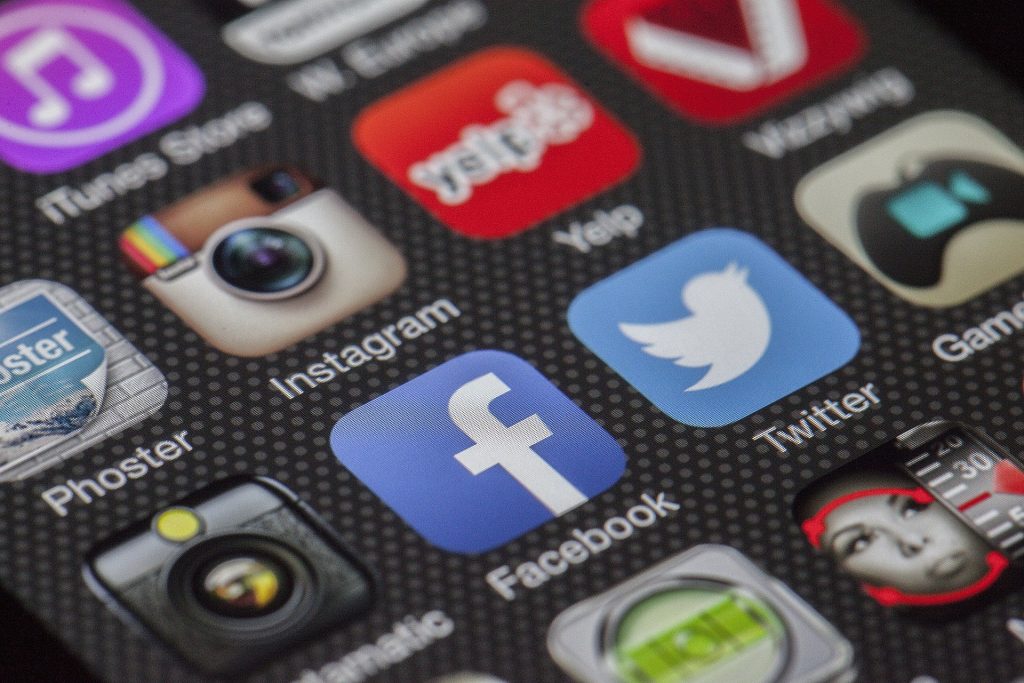Instagram, Facebook, TikTok, and Twitter are some of the most popular social media sites that have interconnected the world. However, these social platforms can also be instruments of addiction.
Studies report that social media may impact substance use, particularly among teenagers and young people who are most likely to use these platforms.
While the emotions sparked by social media can fade away quickly and have little to no effects, the influence of drinking or using drugs can result in addiction and long-lasting health concerns.
It might be helpful to understand the impact of social media on addiction rates and recovery to reverse the detrimental developments of substance use disorder (SUD) and life-threatening drug overdoses.
The Popularity and Influence of Social Media
Social media use is among the most common internet activities. According to Statista, about 82% of Americans had a social media presence in 2021.
The figures increase even further when you focus on the age group that utilizes social media the most. Approximately 90% of adults aged between 18 and 29 used social media as of 2019.
Furthermore, modern technology is so advanced that it can influence decision-making. For instance, if you search online for drink mixers, you will probably see adverts featuring particular mixer brands in your social media timeline.
Similarly, adverts for various vape or smoking products may appear if you search for a vape pen.

It turns out that the internet and social media try to influence your judgment in numerous ways, which makes it even more crucial to investigate how social media use might result in drug use.
Scholars have equated unrestricted social media use to addiction to drugs or alcohol. Many people cannot go even an hour without checking their social media accounts.
Researchers estimate millennials check social media apps 150 times daily on their smartphones.
In fact, during the past 15 years, the average attention span—or time spent concentrating on one thing—has dropped from 12 seconds to 8.3 seconds. Many researchers blame social media for this decline.
Impact of Social Media on Addiction Rates
Social media allows individuals to choose what content they want to see while sharing their everyday experiences.
Based on what users see on their feeds and timelines, using social media might result in the following:
- Online exposure to alcohol and drugs
- Undesirable social comparisons to others
- Depressive, anxious, and lonely thoughts
Online exposure to drugs and alcohol
Social media allows people to communicate online and share their daily experiences.
Some individuals may use their online presence to upload amusing videos or photos wishing loved ones a happy birthday. Others might post videos, photos, and messages of themselves using alcohol or drugs.
This habit is prevalent among celebrities, who undoubtedly have the most power on social media. That is because famous people mostly have a massive social media following that can reach hundreds of thousands.

So, when celebrities like Miley Cyrus or Snoop Dogg frequently upload videos or photographs of themselves using marijuana or drinking alcohol, many young people immediately see these images on their feeds.
Because of this, young people inspired by the celebrities they watch may choose to emulate their substance use, particularly those without a guardian or parent at home, to discuss the risks associated with underage alcohol or drug use.
Drug sales on social media
In addition to celebrity impact, social media has made it easier to promote drug purchases. Young people can find and buy drugs through direct messages on well-known sites like Twitter, Instagram, and Snapchat, according to research released in May.
Because of the “functionality” of Snapchat and Instagram that permits “stories” and messages to disappear every 24 hours, young people may conduct anonymous drug searches online.
One Alabama family filed a lawsuit against Snapchat after their son died from a fentanyl-laced drug they purchased on the app.
Yet, Snapchat had announced a new tool to assist parents in monitoring suspected drug-related chats between their children and drug traffickers.
Instagram social investigation
In May 2022, Tech Transparency Projection (TTP) sought to investigate Instagram’s search results. TTP found that logging off the app required more clicks than searching for narcotics like Xanax.
Instagram warns to redirect users to a national hotline page on the Substance Abuse and Mental Health Services Administration website through the “Get Help” button in the search box.
But even with this warning, teenagers can still search and find many drug dealer profiles using hashtags such as #xanax.
Comparing yourself to others on social media
Comparing oneself to others is a prevalent problem among social media users.
People frequently post photos and videos of their most significant occasions. Many of these pictures have gone through some digital editing.
People build a “false life” on social media to gain likes and followers, which may make their struggles with low self-esteem or other mental health issues even more complex and lead them to lose track of what is true.

According to the Jed Foundation, the number of likes and followers makes unfavorable social comparisons easier because there is ‘data’ to show if you are less or more popular than someone else.
These envious feelings may make someone turn to drugs or alcohol to make them feel better, especially if they are naïve.
Feelings of depression, anxiety, and isolation
This is another significant impact of social media on addiction rates and recovery. Heavy social media use has been linked to reduced overall well-being, which may push some people to take drugs or alcohol as a coping mechanism for negative emotions.
According to research, those who spend five hours or more daily on social media have suicidal thoughts, anxiety, and depression. They also have a reduced sense of self.
For instance, younger women frequently exposed to social media representations of the “ideal thin woman” are at higher risk of developing eating disorders.
Studies have also shown that frequent use of social media intensifies feelings of isolation and loneliness. These negative feelings contribute to anxiety and depression, resulting in drug addiction.
Impact of Social Media on Recovery
But how does social media affect someone who is already recovering? Do social media and addiction recovery have the same adverse outcomes, or can social media serve as a positive outlet where individuals can seek support for abstinence?
Let us first look at what recovery is and how social media can affect recovery outcomes.
What is recovery?
Defining “recovery” will help to understand how social media affects addiction recovery. Recovery goes well beyond therapy and involves more than just abstinence.
While people may have different definitions of recovery, there are several vital aspects that many individuals recognize as part of their recovery journey.
Improved bandwidth for responsibilities
Individuals suffering from substance use disorders frequently find it challenging to meet their obligations and maintain a career, schoolwork, parental duties, and other commitments.

Many begin to resume their previous tasks or accept new, healthy commitments with boundaries during the early stages of recovery.
For each person, this increased bandwidth for responsibilities will take different shapes.
Repaired relationships
Addiction is damaging and leaves a great deal of collateral damage which can damage relationships.
Someone actively abusing drugs or alcohol may react in ways they would never do when sober, which may hurt so much and erode relationships with friends and family.
Because it places community and accountability at the forefront, mending relationships is crucial in recovery.
Personal development
Personal development involves much more than only abstinence. It is about improving yourself, becoming honest, less self-centered, and more involved in your family or community.
These qualities frequently become secondary for someone suffering from a substance use disorder. With a growth mentality, you can constantly improve and approach recovery sustainably.

That explains why self-help organizations like SMART Recovery and Alcoholics Anonymous strongly emphasize personal development as an integral part of their treatment approaches.
Long-term abstinence is easier to sustain when you learn to thrive in your recovery.
The negative impacts of social media and addiction recovery
Social media can affect the three recovery pillars mentioned above.
A time tax on your bandwidth
With the constant stream of new material on social media, you can quickly lose track of time as you scroll, like, and comment.
Taking advantage of an improved bandwidth for responsibilities and excelling at school, work, or family becomes more complex, with social media alerts stealing your attention.
A distraction from actual relations
Social media often feels like a substitute for interactions, making mending ties with friends and family difficult.
It might be hard to get past the algorithms and interactions that feed you triggering content if you have previously participated in groups with a similar interest in substance use.

Creating a healthy, encouraging, and sober environment is one of the most vital elements of addiction recovery. Continually surrounding yourself, even virtually, with individuals who still use it can be pretty tempting.
A damper on personal growth
Social media can obstruct personal development, making you more susceptible to stress, anxiety, and depression.
The “Instagram effect” can be highly appealing; influencer feeds typically overemphasize bright, polished, edited material while underplaying the genuine moments.
People tend to forgo common sense in favor of becoming viral when they become overly concerned with likes and comments.
Trends on social media may spread swiftly for the wrong reasons, inciting risky actions and pushing users to endanger themselves and others.
Social media increases access to and knowledge of current affairs, but it may also burden our society’s mental health by constantly exposing us to secondary trauma and cyberbullying.
Take Action Today!
Many people are aware of the power and impact of social media on addiction rates and recovery. With this knowledge, the next step is learning to avoid negative influences and surround yourself with positive ones.
Social media can pave a path toward risky behavior, such as excessive alcohol or drug use, which can result in addiction.
Avoiding social media’s influence can be challenging, given how established it is in today’s culture. But some programs offer coping mechanisms to protect against social media pressures and prevent the development of a substance use disorder.
You can benefit from such programs if you struggle with a substance use problem influenced by social media.
And don’t lose hope if you are already struggling with substance abuse. Contact us today for professional help!



